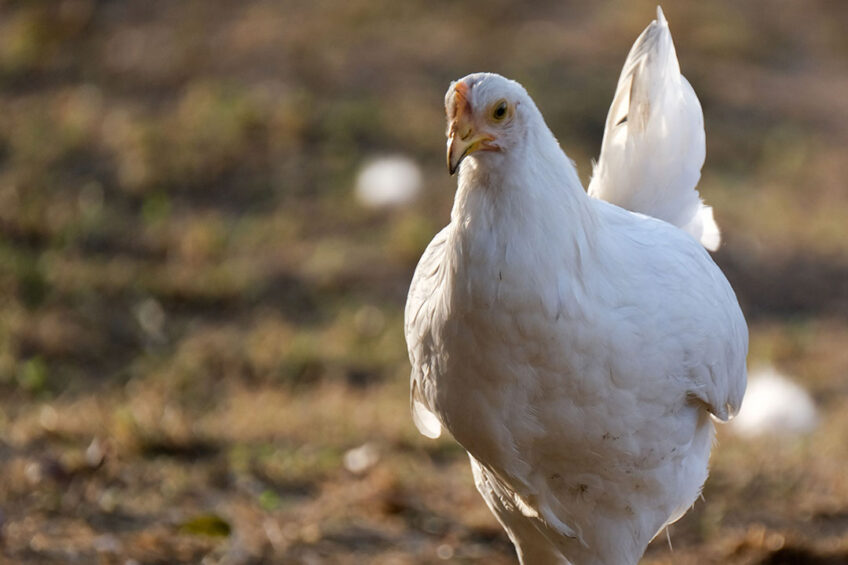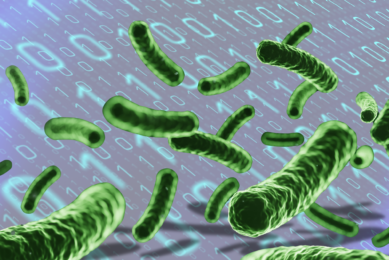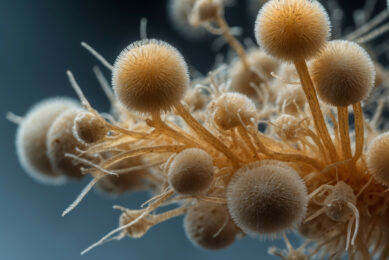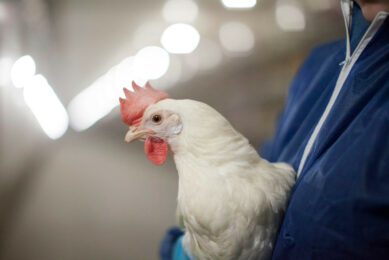Probiotics & prebiotics to replace antibiotics in poultry feed

Effective dietary supplements are required to replace antibiotics in poultry feed. Prebiotics and probiotics are potential alternatives.
Prebiotics and probiotics are potential alternatives for antibiotics, as they enhance growth performance, regulate the immune response, improve meat quality, and alleviate negative heat stress effects in poultry.
The fall of dietary antibiotics
In poultry production systems, dietary antibiotics have been vastly used for prophylactic, and growth promotion purposes early in life since 1940s. However, in 2006 due to the negative public health and environmental impacts of antibiotic-resistant bacteria development, the European Union banned the use of all in-feed antibiotics for growth promotion purposes.
What are probiotics and prebiotics?
Probiotics are living microorganisms including bacteria and yeast that are supplemented in adequate amounts to confer a beneficial health effect on the host. Lactic acid bacteria, Bacillus and Bifidobacteria are the most common types of probiotics that exert competitive effect in the gut and produce bacteriocins, which have an antimicrobial effect on other bacteria. Prebiotics are non-digestible food ingredients that stimulate the growth and activity of beneficial gut microbiota. Prebiotics are selectively fermented in the colon by beneficial bacteria such as Bifidobacterium and Lactobacillus.
The role of indigenous gut bacteria
Indigenous gut bacteria constrain pathogenic agents using a balanced combination of various mechanisms including:
Competition for colonisation sites on the gut epithelium
Competition for nutrients
Production of toxic compounds such as volatile fatty acids and bacteriocins
Immune system regulation
Acidic polysaccharide
Acidic polysaccharide components of the gut cell wall regulate bacteria adherence to each other and to the gut epithelium, block all binding sites, and inhibit pathogenic bacteria from attaching to the gut epithelium. The acidic pH of the luminal contents favours the survival of acid loving bacteria such as the Lactobacilli and inhibits pathogens such as Salmonella spp. and E. coli to bind to the gut receptors.
Specific and nonspecific immune response
In addition, increased lactose concentration in poultry diets enhances Lactobacillus reuteri count in the gut which expand humoral immune response. Probiotic bacteria increase both specific and nonspecific immune responses by activating macrophages, increasing cytokine level and immunoglobulins such as IgA. Dietary supplementation of probiotics and prebiotics increases mRNA expression of genes related to the innate immune response.
Regulating eicosanoids
Furthermore, probiotics and prebiotics regulate the amount and type of eicosanoids, a chemical mediator, which control cytokines production and the nature and intensity of the inflammatory immune responses. Moreover, probiotics and prebiotics alter intracellular signalling pathways, transcription factor activity, the genetic expression of key adhesion molecules, and cytokine gene expression.
Impacts on production parameters and immune system
Supplementing dietary probiotics such as Lactobacillus reuteri, Enterococcus faecium, Bifidobacterium animalis, Pediococcus acidilactici and Lactobacillus salivarius increases body weight gain, enhances feed intake, and improves growth performance in broilers.
Supplementing probiotic mixture of Bacillus licheniformis and Bacillus subtilis spores significantly improves the feed conversion ratio, final and daily weight gain, and survival rate in broiler production systems.
Dietary supplementation of 0.1% dried culture of Lactobacillus acidophilus or 0.1% dried culture of a mixture of Lactobacillus acidophilus, Lactobacillus fermentum, Lactobacillus crispatus, and Lactobacillus brevis enhances the body weight gain.
Commercial probiotics such as Aviguard, Saccharomyces cerevisiae and Pediococcus acidilactici decrease the abundance of Salmonella spp. with no adverse effect on the production parameters of broilers.
In addition, Lactobacillus probiotic reduces the abundance of Salmonella spp. if administered in high dosage during broiler production phase.
Supplementing broiler diets with prebiotics such as 0.375% oligofructose increases the body weight gain and improves percentage carcass and breast weight and decreases percentage fat pad.
Supplementing Agrimos prebiotic improves gut microbiota and growth performance, decreases Enterobacteriaceae count, increases Lactobacilli count, and improves nutrient digestibility in broilers.
Dietary supplementation of 0.2% Aspergillus prebiotic meal has a beneficial effect in reducing Salmonella spp. levels and enhances overall food safety of turkey and broiler meat.
Fermentation product of Aspergillus oryzae as a prebiotic and a Lactobacillus-based probiotic improve body weight gain and feed conversion efficiency.
Dietary viable or heat inactivated probiotic forms combined with avilamycin improve growth performance, nutrient digestibility, digestive enzyme activities, and induce an anti-inflammatory response at caecal level.
Supplementing young turkeys’ diets with commercial probiotics or a commercial mannan oligosaccharide increases the height and area of the gut cell villus.
Dietary probiotics and prebiotics modulate immune response in poultry through immuno-stimulation, anti-inflammatory reactions, exclusion and killing of pathogens in the intestinal tract, and reduction of bacterial contamination on processed carcasses.
Feeding broilers yeast-based feed supplements containing a carbohydrate fraction Antigen increases natural defence to harmful bacteria entering their guts and the secretion capacity of mucin by the gut lining.
Impact on meat quality and heat stress
Dietary supplementation of Rhodobacter capsulatus improves fatty acid profile in broilers.
Supplemented Clostridium butyricum decreases the ratio of fatty acids in breast muscles, increases eicosapentaenoic acid and total fatty acids, and reduces the shear force of broiler meat.
Supplementing broiler diets with Lactobacillus fermentum probiotic and oligosaccharide prebiotics decrease serum cholesterol level and total lipids, lowers breast muscle fat content and shear force, and improves tenderness.
Supplementation of probiotics such as Bacillus, Lactobacillus, Streptococcus, Clostridium, Saccharomyces, and Candida spp. improves the carcass characteristics and meat quality in broilers.
Adding probiotics such as Lactobacillus acidophilus and Streptococcus faecium increases moisture, protein, ash, water holding capacity, emulsion capacity, and stability in broiler meats.
Dietary supplementation of mannan-oligosaccharide and Lactobacillus-based probiotic decrease serum cortisol and cholesterol concentrations and increase thyroxine concentration and improve humoral immunity against Newcastle disease virus and infectious bursal disease virus during heat stress.
The probiotic mixture of Lactobacillus plantarum, Lactobacillus acidophilus, Lactobacillus bulgaricus, Lactobacillus rhamnosus, Bifidobacterium bifidum, Streptococcus thermophilus, Enterococcus faecium, Aspergillus oryzae, and Candida pintolopesii decreases total oxidants and total antioxidants, and reduces some of the detrimental effects of heat stress.
Concluding remarks
Dietary supplementation of prebiotic and probiotic products as early as possible is essential to achieve the best results in the poultry industry. However, economic analysis indicates that prebiotic and probiotic supplementation may not always be feasible and profitable for broiler production systems, therefore, further research in the field is currently ongoing.
This article is based on a research paper by H.S. Al-Khalaifah – Benefits of probiotics and/or prebiotics for antibiotic-reduced poultry.











